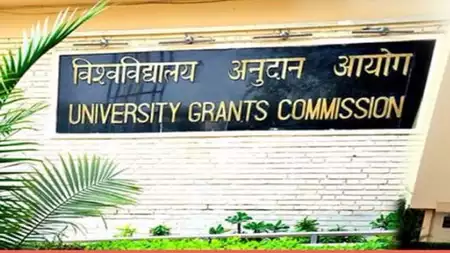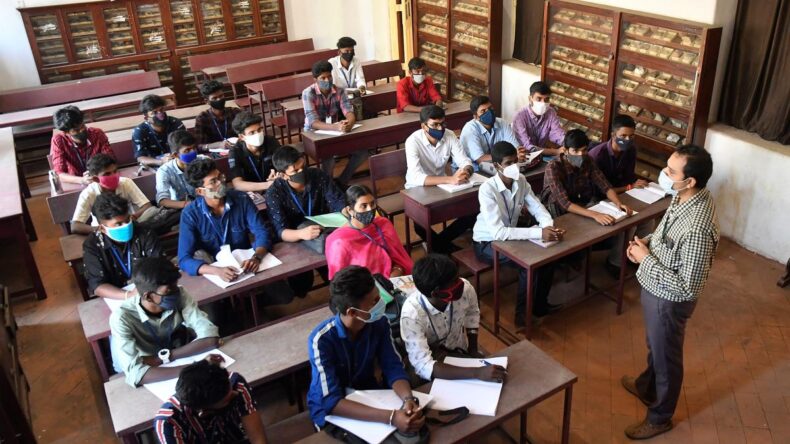In a significant development in the field of higher education, the University Grants Commission (UGC) has reversed its decision on the mandatory requirement of a Ph.D. degree for Assistant Professors. The new directive highlights the National Eligibility Test (NET) as the minimum criteria for teaching positions in colleges and universities across India.
Reversal of the Ph.D. Requirement:
The UGC’s decision to reverse the mandatory Ph.D. requirement has generated mixed reactions among educationists, academicians, and aspiring teachers. While some see it as a positive move that opens up opportunities for talented individuals who may not have obtained a Ph.D., others express concerns about the potential dilution of academic standards and the impact on research and knowledge generation.
UGC’s Emphasis on NET:
In its latest announcement, the UGC has reiterated the importance of the NET as the minimum eligibility criterion for aspiring Assistant Professors. The NET, conducted by the National Testing Agency (NTA), assesses the candidates’ knowledge and aptitude in their respective subjects. The UGC believes that the NET serves as a reliable measure of a candidate’s competency and suitability for teaching roles.
Supporters of the UGC’s Decision:
Proponents of the UGC’s decision argue that the focus on the NET will ensure a level playing field for all candidates. They contend that the NET assesses teaching and research aptitude, making it a comprehensive evaluation tool for prospective Assistant Professors. Supporters also emphasize that this move will encourage more talented individuals to pursue a teaching career, irrespective of their research-oriented aspirations.
Critics of the UGC’s Decision:
On the other hand, critics argue that the Ph.D. requirement provides a deeper understanding and expertise in a specific field, fostering a culture of research and innovation in academic institutions. They express concerns that the dilution of this requirement may compromise the quality of education and hinder the generation of new knowledge. Critics also raise questions about the UGC’s decision, questioning the rationale behind undermining the significance of a doctoral degree in teaching positions.

Impact on the Academic Landscape:
The UGC’s decision will undoubtedly have a profound impact on the academic landscape of the country. It opens up opportunities for talented individuals who possess a strong academic background and teaching aptitude but may not have pursued a Ph.D. This move is expected to diversify the pool of candidates and bring fresh perspectives to the classroom.
However, the decision also raises important questions about the overall direction of higher education in India. It prompts a broader discussion about striking a balance between academic qualifications, research contributions, and teaching expertise. Many argue that while the NET assesses teaching aptitude, the lack of a Ph.D. requirement might devalue the significance of research and scholarly pursuits in the academic realm.
Future Implications and Challenges:
The UGC’s decision has set the stage for a dynamic conversation within the academic community. It underscores the need for a comprehensive review of the criteria for teaching positions and the role of Ph.D. qualifications in the development of higher education in India. It is crucial to strike a balance that promotes both quality teaching and research excellence to ensure holistic growth in the education sector.
Conclusion:
The UGC’s reversal of the mandatory Ph.D. requirement for Assistant Professors in colleges and universities has sparked debates and discussions among educationists and academicians. While some welcome the move as an opportunity to diversify the teaching profession, others express concerns about the potential dilution of academic standards. The emphasis on the NET as the minimum criterion for eligibility raises questions about the balance between teaching aptitude and research expertise. As the academic landscape evolves, it is essential to find a middle ground that values both teaching proficiency and research contributions. A comprehensive review of the criteria for teaching positions is warranted to ensure the continued growth and development of higher education in India. The outcome of this decision will shape the future of the academic landscape and play a crucial role in nurturing a knowledgeable and competent generation of educators. It is crucial for all stakeholders, including the UGC, educational institutions, and policymakers, to engage in meaningful discussions and deliberations to ensure that the best interests of students and the academic community are served.













